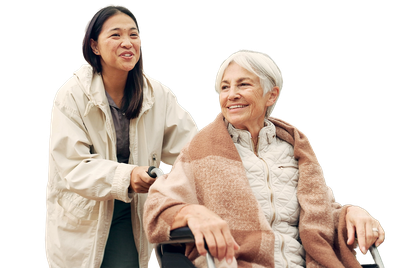Engagement Opportunities: Building a Strong Foundation for Your Healthcare Career


Why Engagement Opportunities Matter
If you’re thinking about a career in healthcare, you’ve probably heard that “getting experience” is key. But what does that actually mean, and why does it matter so much?
Think of engagement opportunities as your chance to step out of the classroom and into real-world healthcare environments. Maybe you’re volunteering at a local clinic, shadowing a physician, or helping run a campus health event. These experiences don’t just make your application stronger — they help you figure out what kind of work excites you and where you might want to focus your energy.
Beyond boosting your application, getting involved early helps you build important skills, connect with mentors, and understand the daily realities of working in healthcare. Most importantly, these opportunities help you discover what truly resonates with you.
Engagement Opportunities: Types and Examples
Considering Differences Across Fields
Every healthcare field has different expectations and priorities. For example, medical schools might focus on clinical shadowing and patient care hours, while public health programs might value community outreach and advocacy more. Rather than trying to check every single box, focus on experiences that feel meaningful to you and align with your interests. Stay flexible — your goals might shift over time, and that’s okay.

Why Track Your Experiences?
Keeping track of your activities is more important than you might think. It helps you:
- Write stronger personal statements and essays with concrete examples
- Spot gaps in your experience so you can plan ahead
- Stay organized when juggling different roles
- Reflect on what you've learned and how you've grown
Tools for Tracking
You don't need anything fancy to start - a simple notebook, a spreadsheet, or a notes app works well. Write down dates, your role and responsibilities, and a few reflections after each experience. These notes will be a huge help when you're putting together applications or prepping for interviews. There are also electronic tools such as Liaison's freeLiving Profile.
Tips for Getting Started
- Start early. You don’t have to wait until college — getting involved in high school can help you explore interests and build confidence.
- Network. Talk with family, friends, and mentors about connections they have in the healthcare space. Ask your own physician if they could recommend someone in the field you are interested in whom you could talk with. Remember, it might turn out that a friend of a friend has a terrific and unexpected connection.
- Mix it up. Try both clinical and non-clinical experiences to get a broader view of healthcare.
- Look beyond the clinic. Community service and leadership roles show that you’re adaptable and have strong people skills.
- Use campus resources. Career centers, pre-health advisors, and student organizations can help you find opportunities and mentors.
- Stay flexible. Your interests might shift as you learn more. Be open to exploring new directions.
General Engagement Checklist
- Identify your main areas of interest.
- Research local hospitals, clinics, and community organizations.
- Apply for volunteer or shadowing roles.
- Find a mentor who can guide you.
- Join (or start) a student or community health organization.
- Keep detailed records of each experience.